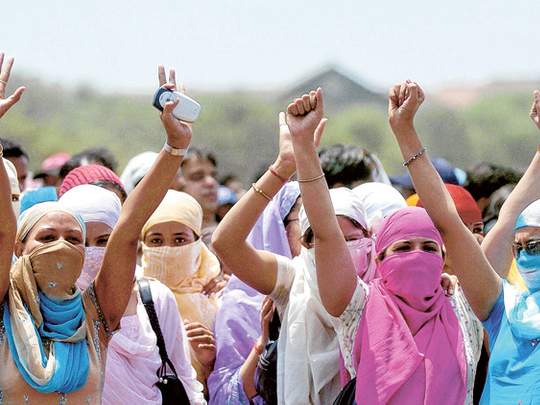
New Delhi: Five years after Mumbai clamped down on bar dancers, the women still await rehabilitation and many have been forced to join the circus or become sex workers, says San Francisco-based writer Sonia Faleiro whose latest book casts a candid look at their lives now.
"Unlike the protagonist of my book, Leela, who stayed on to fight the ban, most Mumbai bar dancers have either left for home or been informally absorbed into professions like circuses and tamasha [traditional Indian street performing arts]," Faleiro told IANS.
"A lot of them work on their own as sex workers independent of pimps. They are attached to brothels or they offer their services at private parties in Mumbai, Madh Island and Uttar Pradesh," she said.
Her second book, Beautiful Thing: Inside the Secret World of Bombay's Dance Bars, was released this week. Her first book was a work of fiction called The Girl. Faleiro, a former journalist, said the situation is both ridiculous and tragic at the existing dance bars in Mumbai now. "Customers come to the bars and alcohol flows. The girls just stand like ice candy," she said.
On July 22, 2005, the Maharashtra state assembly adopted a bill banning dance bars across the state. The ban was implemented starting August 2005 forcing thousands of bar dancers out of jobs.
No resentment
Faleiro's book is a journey into the forbidden world of Mumbai dance bars led by the protagonist Leela, a bar dancer, who stands her ground against the administration and wins. "The idea for the book was sown in 1995," the writer said. "I watched a television report about dance bars and called a bar owner in south Mumbai — an old source. He managed to procure three bar dancers with difficulty because they do not talk to the media. One of them was Leela," Faleiro said.
Leela did not harbour any resentment or bitterness about her vocation, Faleiro said.
"She trusted me implicitly because I was not judgmental. I was driven by curiosity. When I told her that I wanted to write about her in some capacity, she agreed to introduce me to the world of dance — family and boyfriend Purushottam Sethi, a married man. I followed her for many months — then the ban happened. Over cups of black tea, I felt that the issue had to be addressed, had to be remembered, and the best way to do it was in the form of a book," the writer recalled.












